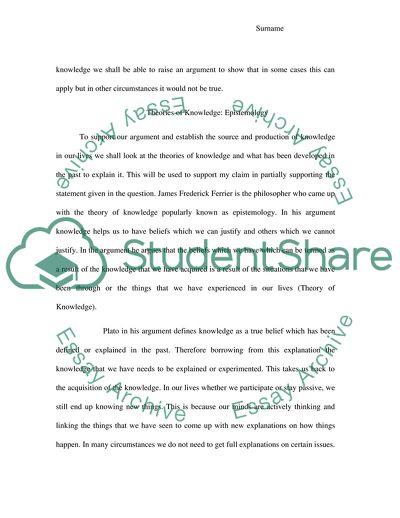Cite this document
(Knowledge in Everyday Life: Theory and Application Essay - 1, n.d.)
Knowledge in Everyday Life: Theory and Application Essay - 1. https://studentshare.org/social-science/1846845-there-are-only-two-ways-in-which-humankind-can-produce-knowledge-through-passive-observation-or-through-active-experiment-to-what-extent-do-you-agree-with-this-statement
Knowledge in Everyday Life: Theory and Application Essay - 1. https://studentshare.org/social-science/1846845-there-are-only-two-ways-in-which-humankind-can-produce-knowledge-through-passive-observation-or-through-active-experiment-to-what-extent-do-you-agree-with-this-statement
(Knowledge in Everyday Life: Theory and Application Essay - 1)
Knowledge in Everyday Life: Theory and Application Essay - 1. https://studentshare.org/social-science/1846845-there-are-only-two-ways-in-which-humankind-can-produce-knowledge-through-passive-observation-or-through-active-experiment-to-what-extent-do-you-agree-with-this-statement.
Knowledge in Everyday Life: Theory and Application Essay - 1. https://studentshare.org/social-science/1846845-there-are-only-two-ways-in-which-humankind-can-produce-knowledge-through-passive-observation-or-through-active-experiment-to-what-extent-do-you-agree-with-this-statement.
“Knowledge in Everyday Life: Theory and Application Essay - 1”. https://studentshare.org/social-science/1846845-there-are-only-two-ways-in-which-humankind-can-produce-knowledge-through-passive-observation-or-through-active-experiment-to-what-extent-do-you-agree-with-this-statement.


